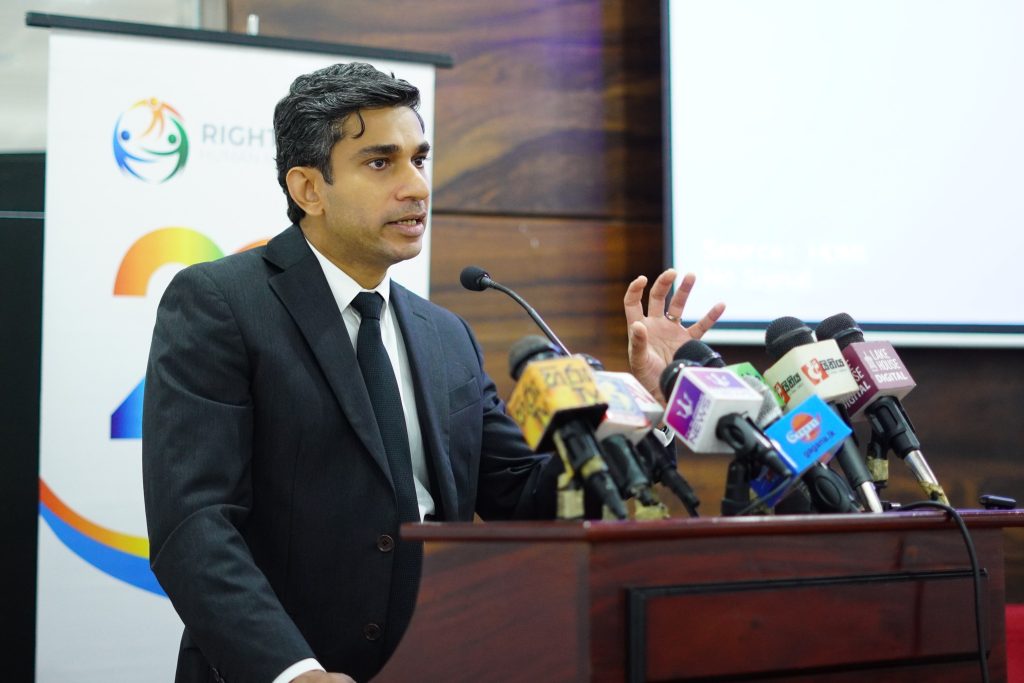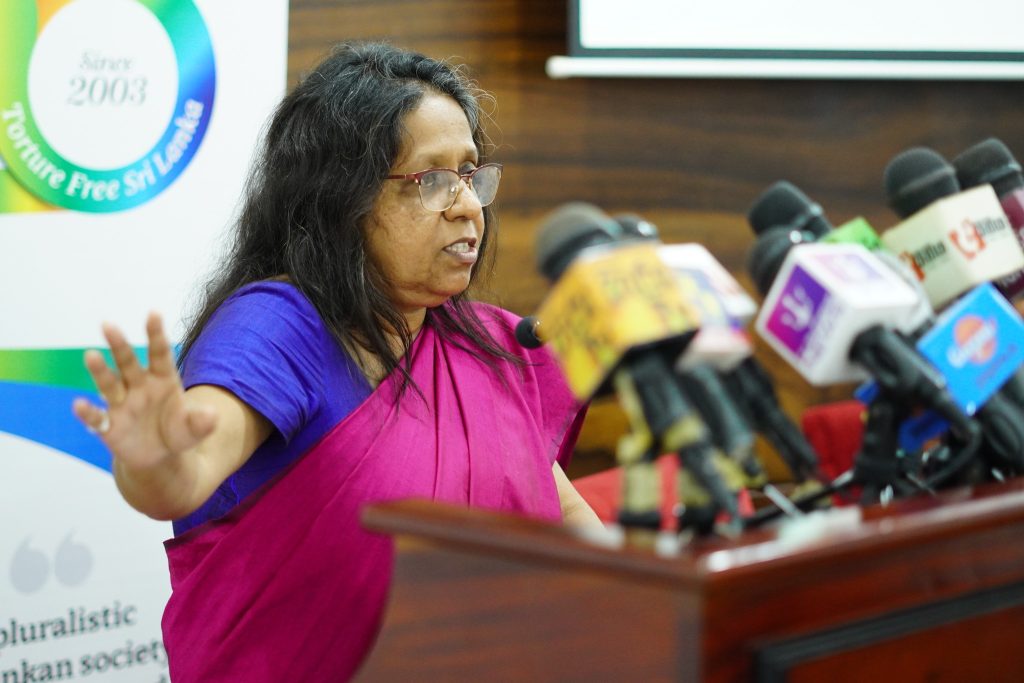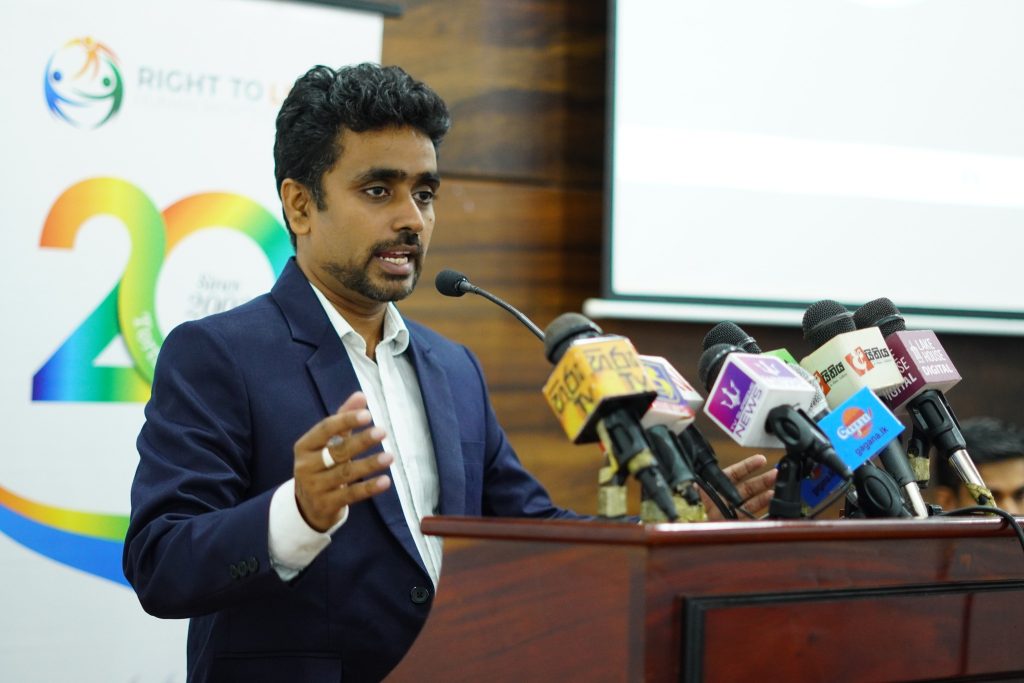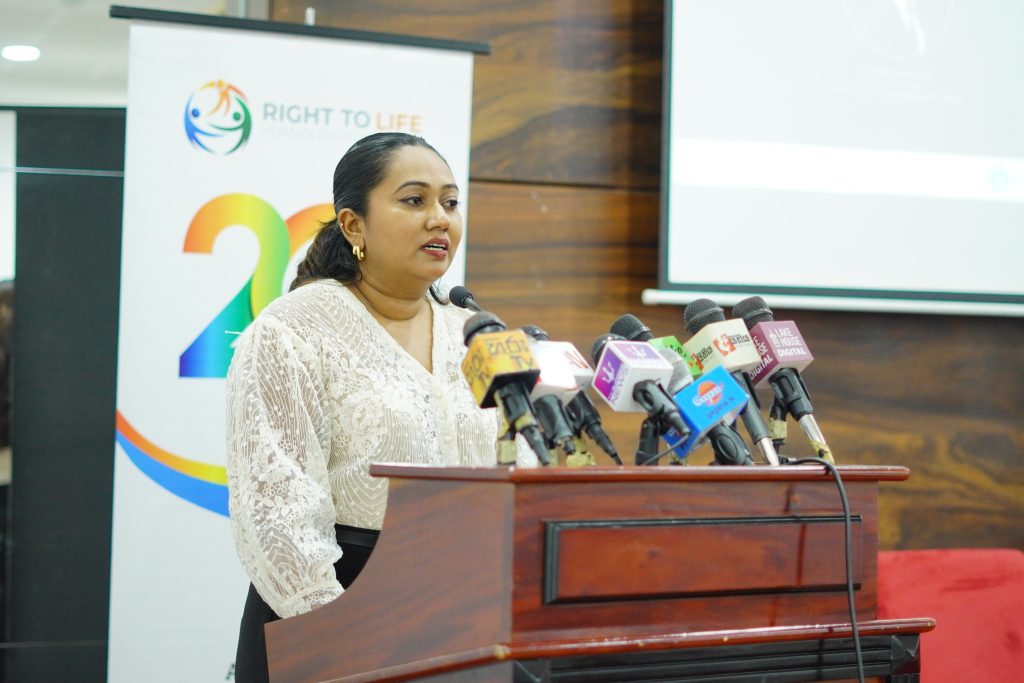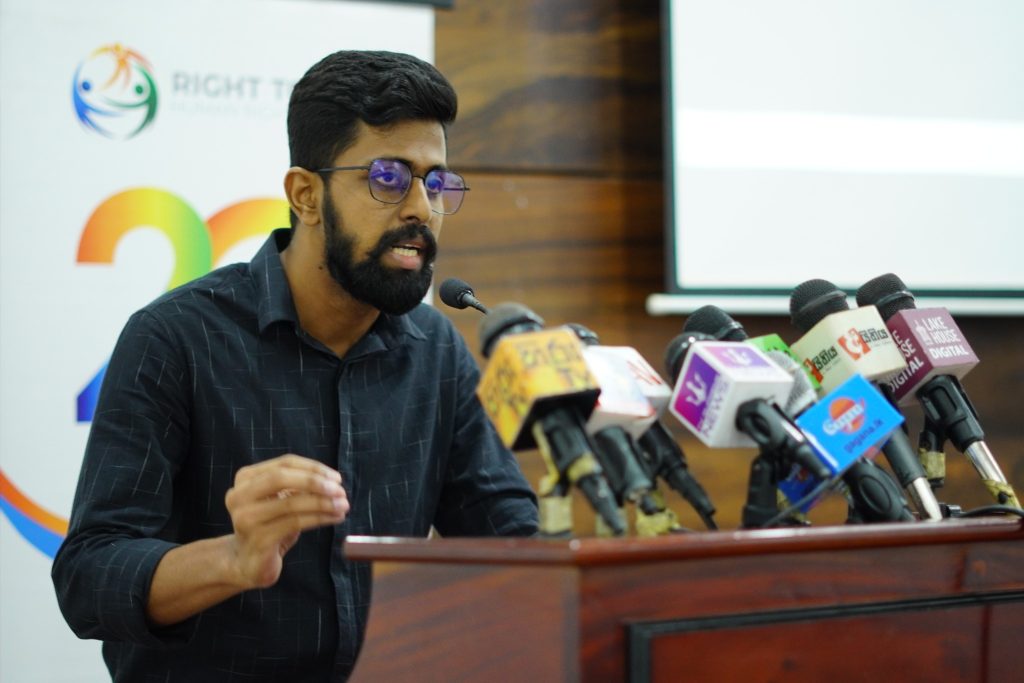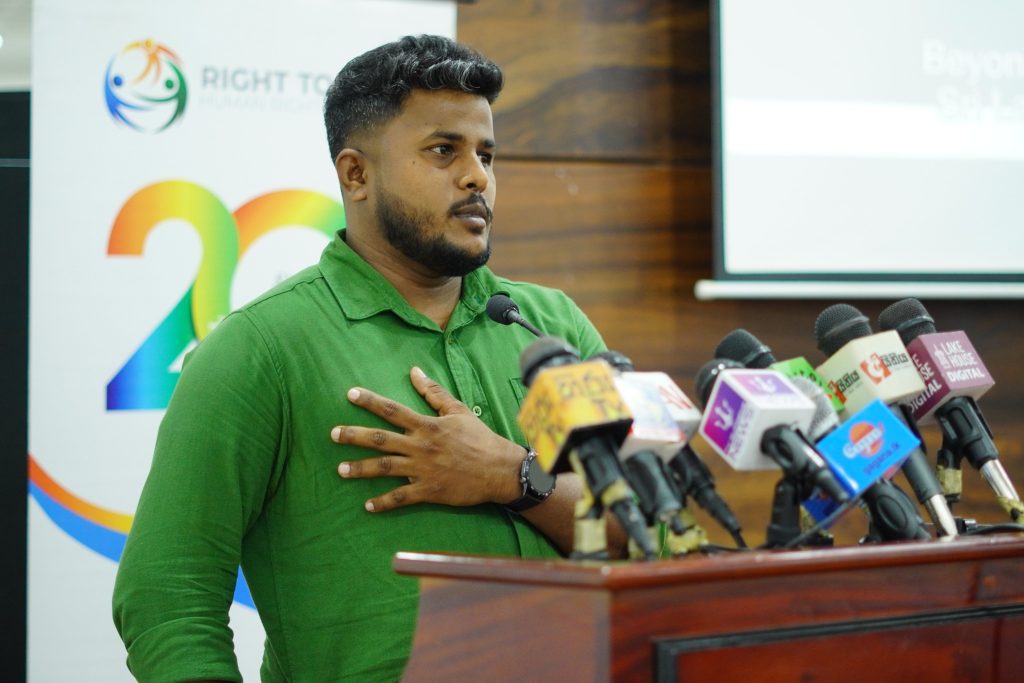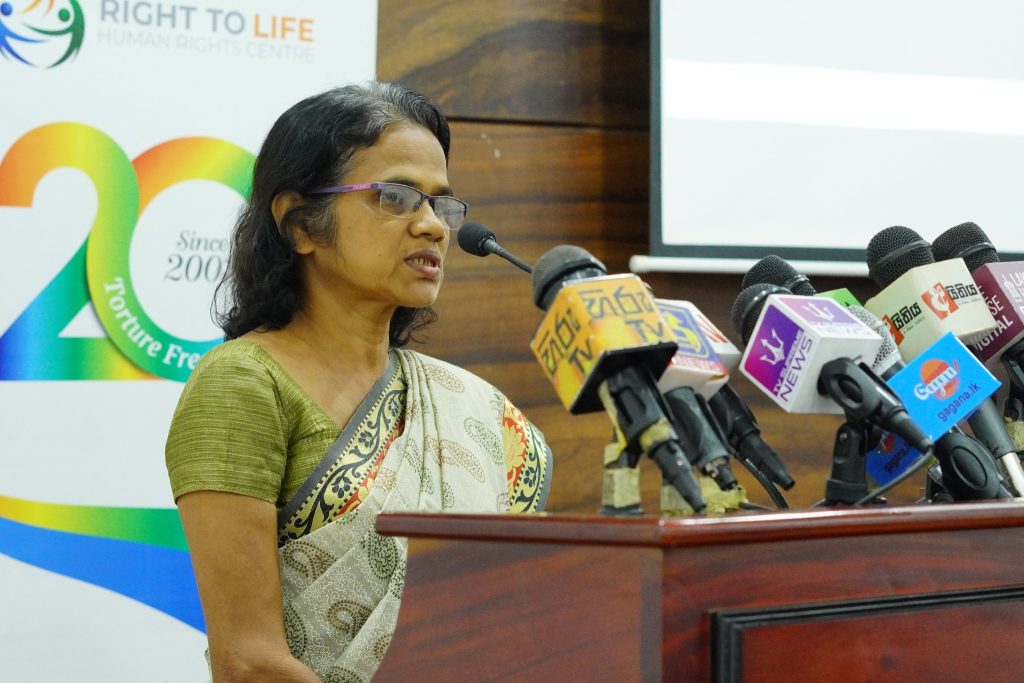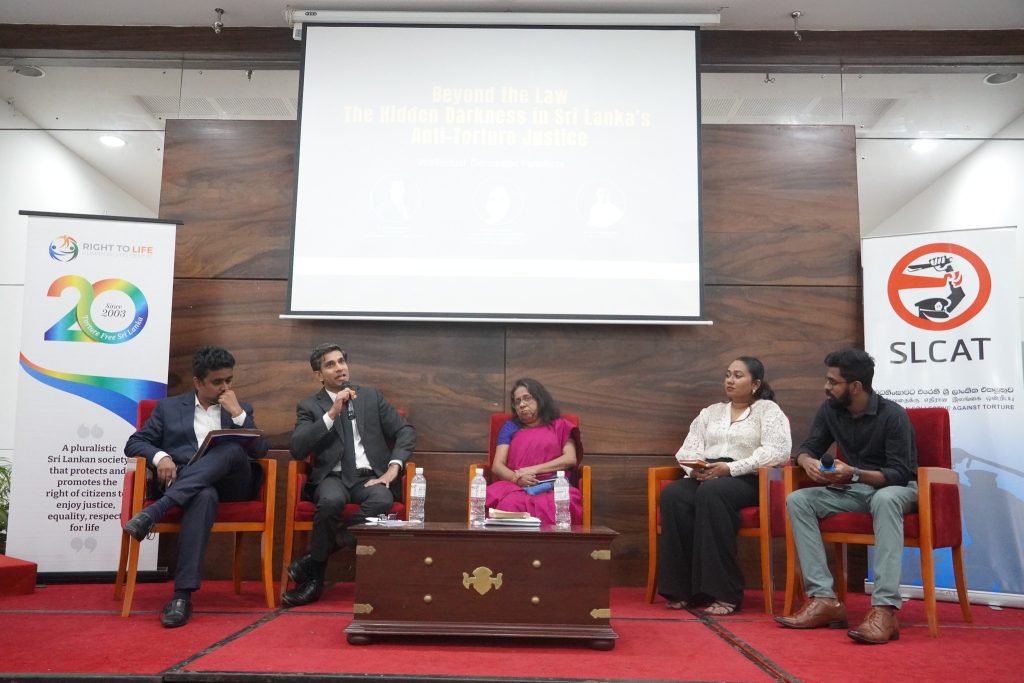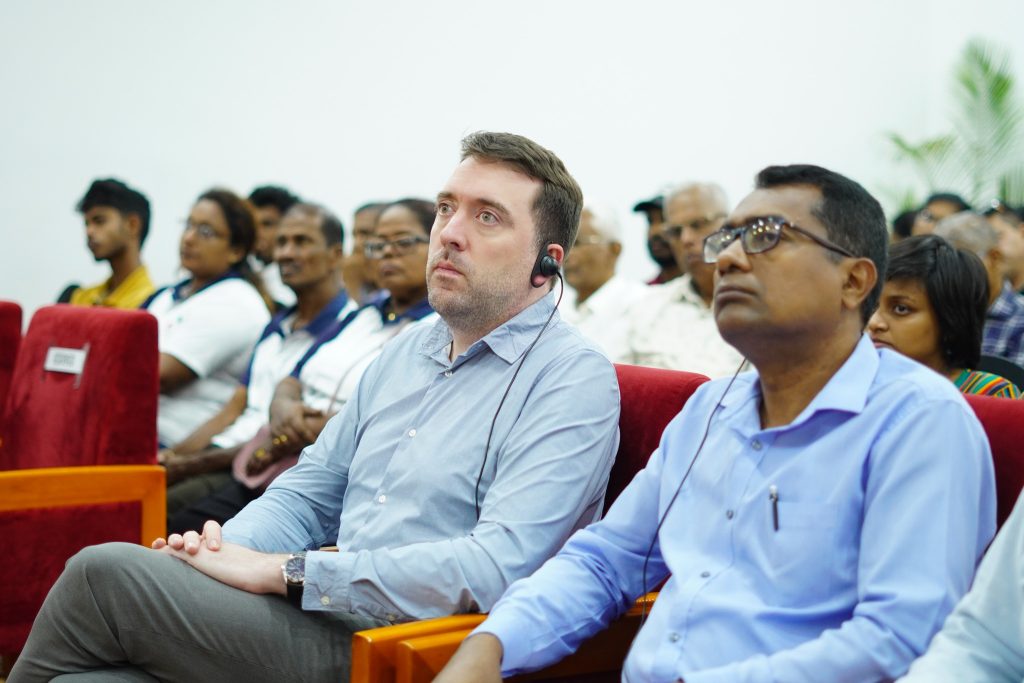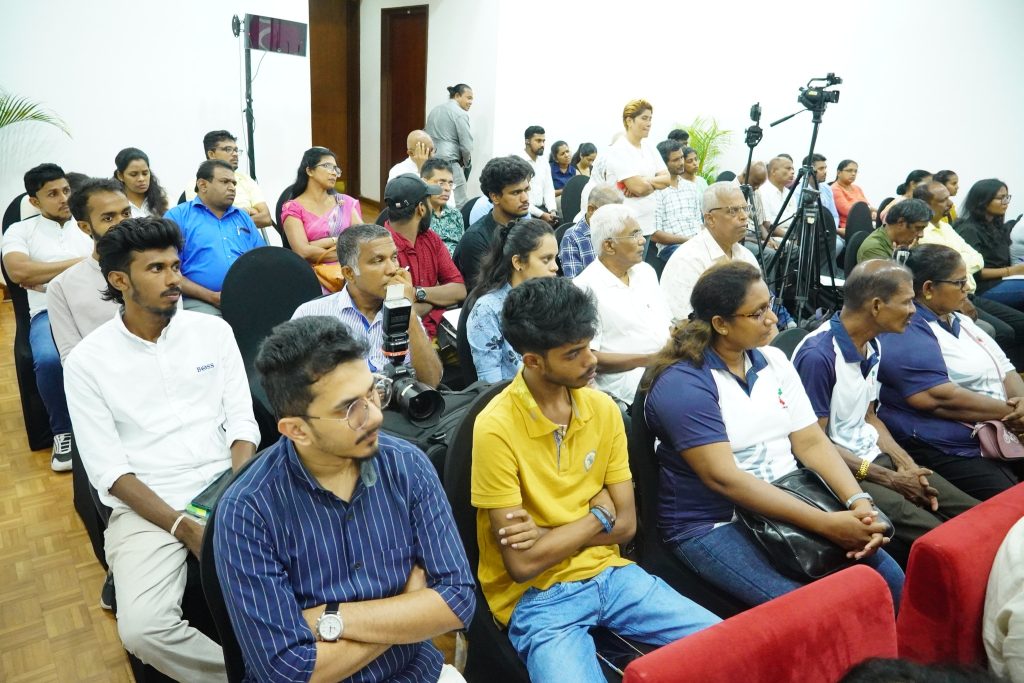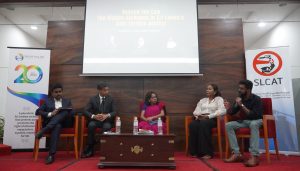
The Right to Life Human Rights Centre solemnly observed the International Day in Support of Victims of Torture on June 25, 2025, by organising a high-level intellectual forum at Tulip Hall, BMICH. Titled “Beyond the Law: The Hidden Darkness in Sri Lanka’s Anti-Torture Justice,” the event brought together survivors, legal experts, institutional representatives, and human rights activists to assess the 30-year journey of the Convention Against Torture and Other Cruel, Inhuman or Degrading Treatment or Punishment Act, No. 22 of 1994, and the persistent challenges in enforcing justice against torture in Sri Lanka.
Opening remarks were delivered by the Project Manager of the Right to Life Human Rights Centre, Ms. Rashmika Wijesinghe, who underscored the urgent need for a systemic shift in Sri Lanka’s institutional response to torture.
The first segment of the event gave space to survivor testimonies. Mr. Chandima Madhushan, a former sales representative, recounted in harrowing detail how he was unlawfully detained and brutally tortured by police in 2019. His account revealed the obstacles victims face in seeking redress, despite a Supreme Court ruling that awarded him Rs. 2 million in compensation. Human rights defender Ms. Amitha Priyanthi shared her 25-year-long struggle to achieve justice for her brother, who died in police custody in 2000, and highlighted the failures in criminal prosecution and lack of police accountability.
Keynote speaker Dr. Gehan Gunatilleke, Commissioner of the Human Rights Commission of Sri Lanka (HRCSL), stressed that while Sri Lanka’s legal framework provides zero tolerance for torture, real-world enforcement is deeply flawed. In 2023 alone, HRCSL received over 500 complaints, and in 2024 the figure rose to over 700. He proposed the establishment of an independent investigative mechanism, separate from the police, with guaranteed resources, similar to models in South Africa, Canada, and the UK.
Ms. S.S.K. Kasturiarachchi, Director (Legal and Law Enforcement) at the National Authority for the Protection of Victims of Crime and Witnesses, elaborated on the scope of the Assistance to and Protection of Victims of Crime and Witnesses (Amendment) Act, No. 24 of 2023. She explained how the law extends protections to family members of victims and enables remote testimony and compensation, yet is undermined by systemic delays and police-led threat assessments.
Attorney-at-Law Mr. Dulan Dassanayake pointed out the critical gap between complaint volume and prosecutions under the Torture Act, Convention Against Torture and Other Cruel, Inhuman or Degrading Treatment or Punishment Act, No. 22 of 1994—only 115 cases filed in 30 years. He called for an independent prosecutorial authority and urgent reforms to prevent impunity, especially concerning PTA detainees, some of whom remain incarcerated for over 15 years without conviction.
The panel discussion highlighted the need for bold legal reforms, public education, and institutional restructuring to combat torture. The event closed with a clear message: torture is not merely a legal issue but a deep-rooted social injustice that must be eradicated through sustained, collective effort.
— Media Unit, Right to Life Human Rights Centre
